Twenty years ago, my sister sent me a book in the mail. My sister isn’t one to send letters and she’d never sent me a book before. The book was a debut novel by a writer I’d never heard of, and inside the front cover my sister had written a short note, which read:
“This is a book about elevators. You have to read it.”
The novel was The Intuitionist by Colson Whitehead, and my sister was right, I did have to read it. Set in a city that sounds a lot like postwar New York but isn’t, the novel conjures a world in which elevator inspectors follow two competing schools of thought: the Empiricists, who use traditional instruments to diagnose an elevators’ problems, and the Intuitionists, who ride the elevator and feel what’s wrong with it. When Lila Mae Watson, a young Intuitionist and the city’s first black woman inspector, is blamed for the failure of an elevator, the novel sets in motion a sly allegory on racial uplift.
After I thanked my sister for the gift of The Intuitionist, I became a Whitehead evangelist, reading all his books and pressing them on friends. I didn’t love everything he wrote—Zone One, his 2011 zombie novel, is pretty meh—but with each book, Whitehead seemed to be stretching himself, restlessly experimenting with form and genre and subject.
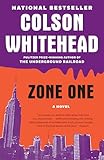 So I was puzzled by my reaction to the two novels he wrote after Zone One, The Underground Railroad (2016) and The Nickel Boys (2019). Both won the Pulitzer and cemented his status as one of the pre-eminent novelists of his generation, but they left me underwhelmed. I don’t know how defensible this reaction is. It could very well be that, like that annoying guy who can no longer listen an indie band after it starts winning Grammys, I was merely resenting having to share Whitehead with the wider world.
So I was puzzled by my reaction to the two novels he wrote after Zone One, The Underground Railroad (2016) and The Nickel Boys (2019). Both won the Pulitzer and cemented his status as one of the pre-eminent novelists of his generation, but they left me underwhelmed. I don’t know how defensible this reaction is. It could very well be that, like that annoying guy who can no longer listen an indie band after it starts winning Grammys, I was merely resenting having to share Whitehead with the wider world.
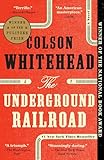
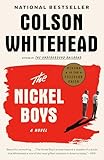 But the
thing I like about reading Whitehead is how you never quite know, from book to book
or from page to page, what he’s going to do next. Who else would think to tell
the story of race in America through a parable of elevator repair? But with The
Underground Railroad and The Nickel Boys I knew what to expect, and I
got it. Even the speculative elements, like the fact that the route to freedom
in The Underground Railroad turns out to be an actual underground
railroad, struck me as groaningly literal-minded. Okay, so it’s an actual underground
railroad. So?
But the
thing I like about reading Whitehead is how you never quite know, from book to book
or from page to page, what he’s going to do next. Who else would think to tell
the story of race in America through a parable of elevator repair? But with The
Underground Railroad and The Nickel Boys I knew what to expect, and I
got it. Even the speculative elements, like the fact that the route to freedom
in The Underground Railroad turns out to be an actual underground
railroad, struck me as groaningly literal-minded. Okay, so it’s an actual underground
railroad. So?
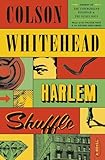

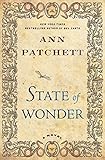


 All of which helps explain why I was so thoroughly gutted by Whitehead’s latest novel The Harlem Shuffle. I read plenty of other great books this year. I went on a bit of an Ann Patchett binge, reading Commonwealth, The State of Wonder, and The Dutch House. I reread Philip Roth’s The Plot Against America and John Steinbeck’s Of Mice and Men, two classics that get more relevant with each passing year. I inhaled the crime stories IQ and Righteous by Joe Ide and Razorblade Tears by rural-noir genius S.A. Cosby. In nonfiction, I choked with rage at the destruction wreaked by the Sackler family as reported in Patrick Radden Keefe’s Empire of Pain and empathized with Matthew Specktor’s tale of failure and creative rebirth in Always Crashing in the Same Car.
All of which helps explain why I was so thoroughly gutted by Whitehead’s latest novel The Harlem Shuffle. I read plenty of other great books this year. I went on a bit of an Ann Patchett binge, reading Commonwealth, The State of Wonder, and The Dutch House. I reread Philip Roth’s The Plot Against America and John Steinbeck’s Of Mice and Men, two classics that get more relevant with each passing year. I inhaled the crime stories IQ and Righteous by Joe Ide and Razorblade Tears by rural-noir genius S.A. Cosby. In nonfiction, I choked with rage at the destruction wreaked by the Sackler family as reported in Patrick Radden Keefe’s Empire of Pain and empathized with Matthew Specktor’s tale of failure and creative rebirth in Always Crashing in the Same Car.
But nothing touched the mastery and ease of The Harlem Shuffle. A collection of three linked novella-length crime stories set in Harlem in the late ’50s and early ’60s, The Harlem Shuffle follows Ray Carney, a striving young furniture store owner drawn (mostly) against his will into criminal capers. The most inventive and engrossing of these is a heist at the famed Hotel Theresa, “the Waldorf of Harlem,” but a lot of writers can cook up good caper plots. What sets The Harlem Shuffle apart is its voice, by turns witty and urbane, thoughtful and brooding. Take, for instance, this delicious bit of scene-setting early in the book as Carney’s ne’er-do-well cousin Freddie meets Miami Joe, the mastermind of the Theresa job, at a bar called Baby’s Best:
The lights were going, though, spinning and whirring, perhaps they never stopped, even when the place was closed, red and green and orange in restless, garish patrol over surfaces. It was Mars. Miami Joe had his arms spread on the red leather when Freddie walked in. Miami Joe, sipping Canadian Club and twisting his pinkie rings as he mined the dark rock of his thoughts.
That’s what I mean by never quite knowing what’s coming next. You think you know where this is going. You’ve literally seen this movie before: the noisy club, the garish lights, the underworld figure off on his own with his whiskey and his pinkie rings, and then, out of nowhere, he’s “min[ing] the dark rock of his thoughts.” This is classic Whitehead, at once a punchline, a dead-on character moment, and a deft rhetorical move away from crime fiction into the loftier realms of literary fiction.
I have no beef with readers who loved his two previous Pulitzer-winning novels. Maybe they’re even objectively better books. But I couldn’t kick the sense that in taking on American slavery (The Underground Railroad) and the Jim Crow South (The Nickel Boys), Whitehead felt he had to pull out all the stops, out-Whitehead Whitehead. Compared to these literary symphonies, The Harlem Shuffle is a chamber piece, played in a minor key. But sometimes the simple pleasures are the best.
More from A Year in Reading 2021 (opens in a new tab)
Don’t miss: A Year in Reading 2020, 2019, 2018, 2017, 2016, 2015, 2014, 2013, 2012, 2011, 2010, 2009, 2008, 2007, 2006, 2005










